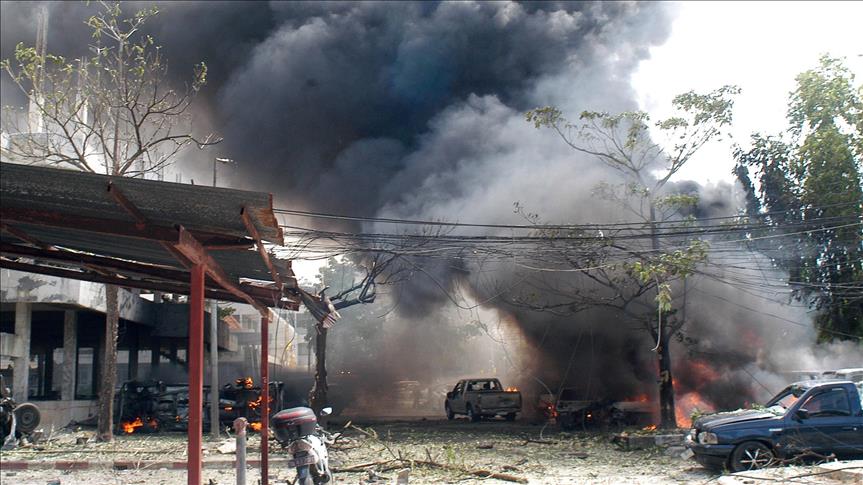Bomb injures 4 police officers in Thailand’s south
Remote controlled device explodes near police vehicle in Thailand’s Muslim majority south
 File photo
File photo
By Max Constant
BANGKOK
Four border patrol police officers were hospitalized in Thailand’s Muslim majority south on Monday, when a remote controlled bomb exploded near their vehicle.
Police sergeant Adinant Modjot, a deputy-investigator at a police station in Narathiwat -- one of three provinces plagued by insurgency for decades -- told Anadolu Agency that separatists were behind the attack.
“The remote-controlled device was buried on the side of a road in Sungai Kolok district. It exploded when the pick-up truck of the border patrol police team was passing," he said by phone.
“Four of them were injured and sent to the hospital. We consider insurgents responsible.”
Monday's attack followed a series of violent incidents over the last few weeks in the three southern provinces of Yala, Narathiwat and Pattani, which include the Nov. 26 killing of an eight-month pregnant woman.
A recent release from independent organization Deep South Watch, which is monitoring the violence, however, show that there has been a fall in violence over the last 10 years
Up to the end of October 2016, 564 violent incidents -- including 227 deaths from attacks -- took place, while in 2015, there were a total of 673 incidents and 246 deaths, and, in 2014, 806 incidents and 341 deaths.
The bloodiest year in the last 12 was in 2005 with 2,174 incidents and 601 deaths.
The southern insurgency -- which has destabilized the three southernmost provinces of Pattani, Yala and Narathiwat for decades -- is rooted in a century-old ethno-cultural conflict between Malay Muslims living in the region and the Thai central state where Buddhism is considered the de-facto national religion.
Armed insurgent groups were formed in the 1960s after the then-military dictatorship tried to interfere in Islamic schools, but the insurgency faded in the 1990s.
In 2004, a rejuvenated armed movement -- composed of numerous local cells of fighters loosely grouped around the National Revolutionary Front, or BRN -- emerged.
After the military seized power in May 2014, the junta continued the overthrown elected civilian government’s policy of holding peace talks with insurgent groups.
A recent report on the south by the International Crisis Group, a Brussels-based think tank, has claimed, however, that the talks have “foundered” as both sides “prefer hostilities to compromise”.
“The National Council for Peace and Order [NCPO], which seized power in the 2014 coup, professes to support dialogue to end the insurgency but avoids commitment,” the report said, referring to the ruling junta by its official name.
Anadolu Agency website contains only a portion of the news stories offered to subscribers in the AA News Broadcasting System (HAS), and in summarized form. Please contact us for subscription options.







